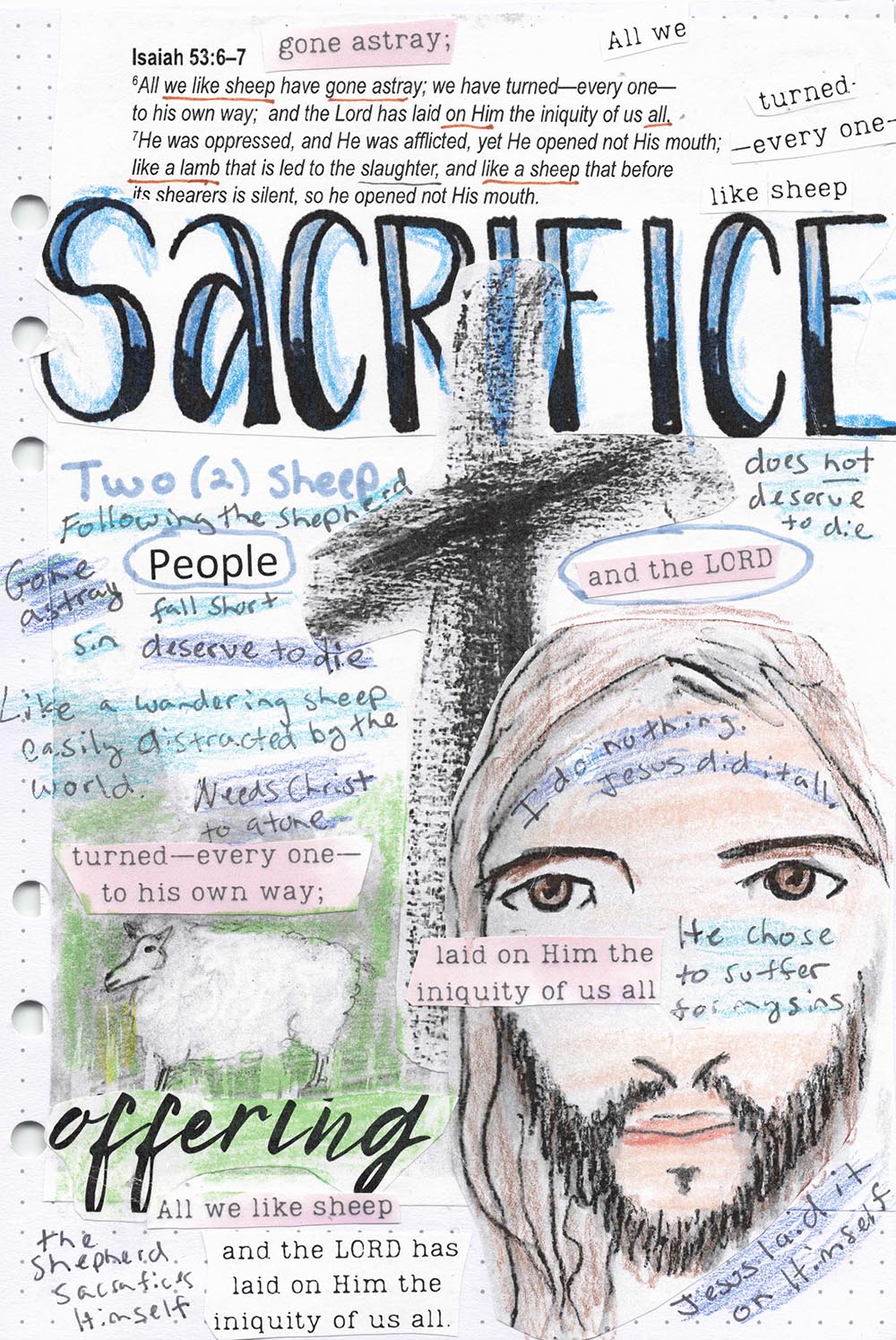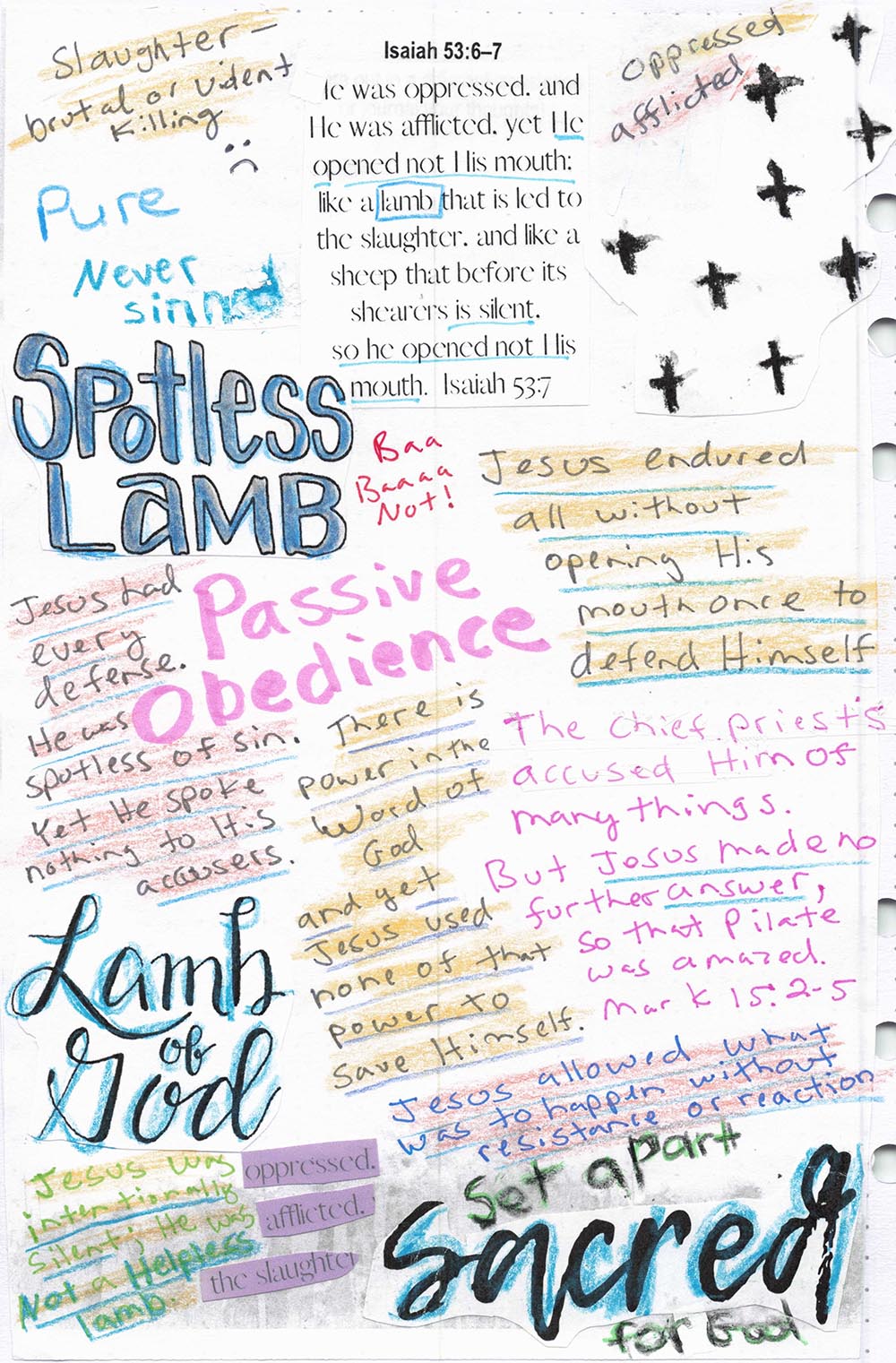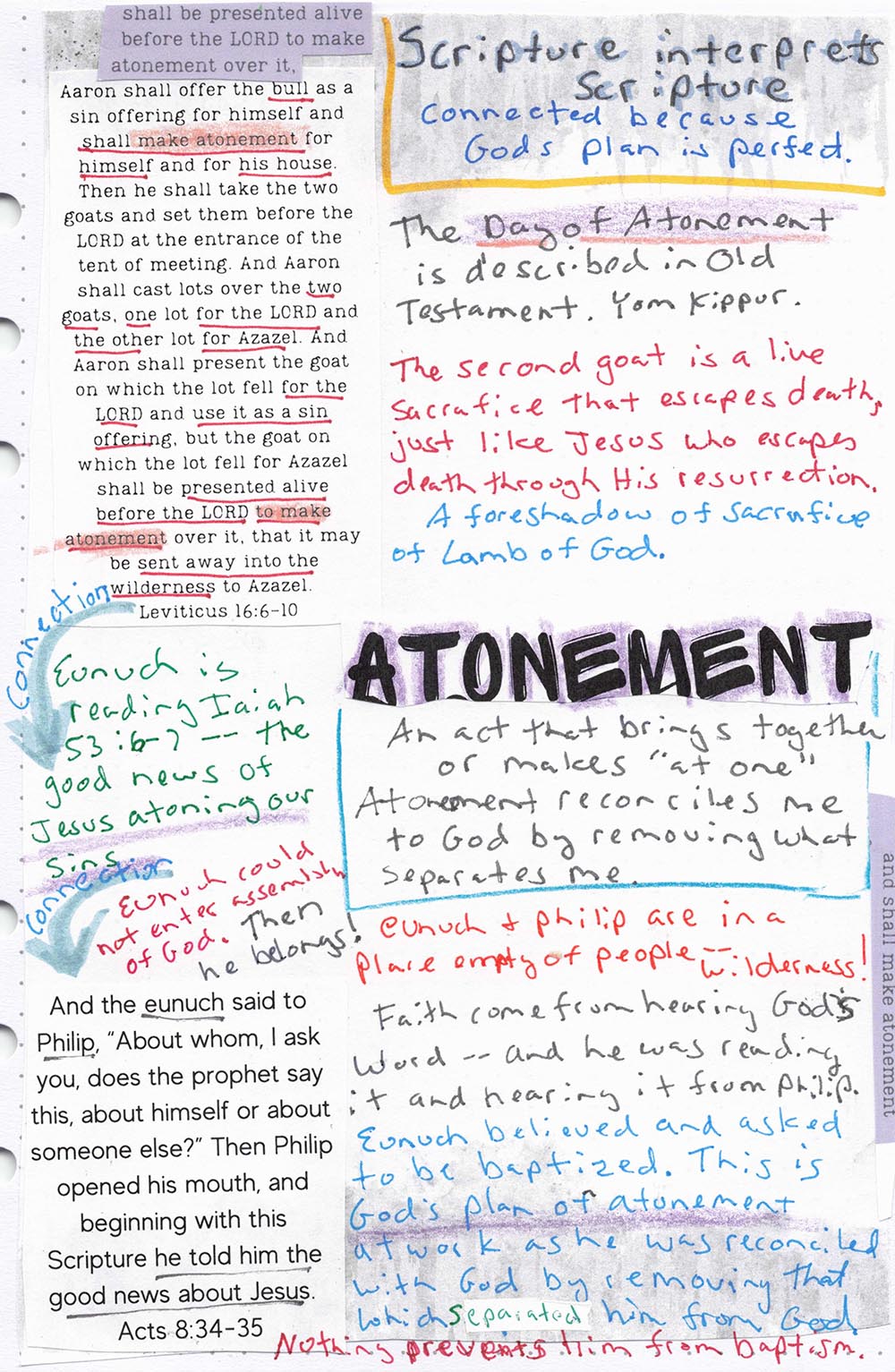My Corner Online
Isaiah 53:6-7
See index to the 2023 Lenten study


March 18-24, 2023
53:6-7 Jesus's sheep (followers), every one of them, have gone astray from Him (for all have sinned and fall short) and yet Jesus still loves everyone enough to die for them. There are two sheep here: (1) and (2). The first (1) is led by a Shepherd (2) and yet still goes astray and the second (2) sheep is given in sacrifice for those who go astray. Like a sacrificial lamb, Jesus was oppressed, afflicted, never opening His mouth to complain or plead, led to be slaughtered (brutal or violent killing of a person). We all turn to our own way (1), putting our way above God's Will (law). Like a wandering sheep (1) getting distracted by the things of the world, we need Christ (2) to atone for our sins. Atonement is an act that brings together, or makes "at one" two individuals. Atonement is Jesus satisfying our debt that we should pay for our sins. It is Jesus righting my wrongs. Atonement is reconciling me to God by removing that which separates me from Him. "The Lord lays on Him the iniquities of us all" reminds me that I do nothing and Jesus does it all. He choose to suffer for my sins. Jesus endured it all without opening his mouth once to defend Himself. He had every defense and yet spoke nothing to His accusers. Mark 15:2-5 There is power in the Word of God and yet Jesus used none of that power to save Himself. Jesus was intentionally silent, not a helpless lamb. This is known as Jesus's "passive obedience" in that He sacrificed Himself for me. His "active obedience was Christ fulfilling the law perfectly. Jesus allowed what was to happen without resistance or reaction.

Scripture Interprets Scripture and spans from the Old Testament, to the time of the Prophets, to the New Testament. All scripture is completely connected because God's plan is perfect.
A. In Leviticus 16:3-10 describes the Day of Atonement in that there are two goats and one is sacrificed as a sin offering and the scapegoat was "presented alive" to make atonement over it. This is the scripture that was celebrated as Yom Kippur known as the Day of Atonement, but is not practiced today. The ram offering was to please God, the bull was a sin offering for the high priest (Aaron) and his family. The two goat offerings were for the sin of the people. In Leviticus 4:1-12 there was only one goat. The high priest cast lots over the two goats and one was chosen as a sacrifice for the Lord for the people's sin. The second goat symbolically carried the sins away into the wilderness and was for Azazel. No one really knows who Azazel was although there is much speculation. The name is a Hebrew word to mean "scapegoat" or "escape goat" to escape death as it went into the wilderness. This is a foreshadow of the sacrifice of the Lamb of God, Jesus, who also escapes death through His resurrection.
B. Acts 8:26-39 quotes Isaiah 53:6-7 and the eunuch did not understand the verses, but Philip was there to help him understand. I find it interesting that the eunuch is in the wilderness where Philip finds him and that is where the scapegoat was sent. The eunuch was reading God's Word and faith comes from hearing the Word of God. Philip helped the eunuch understand The Word, he believed, and asked to be baptized. Here we see God's plan of atonement at work in that the eunuch was reconciled to God by removing that which separated him from God.
NOTES FOR ACTS 8:26-39: An Angel of the Lord is Jesus in the Old Testament. Jesus tells Philip to go to a certain road that is a deserted place, that is, a place empty of people. I would think this could also be called the wilderness. At this place was a eunuch from Ethiopia. A eunuch is a man whose had his balls removed. Deuteronomy 23:1 “No one whose testicles are crushed or whose male organ is cut off shall enter the assembly of the Lord." This would mean that while the eunuch was in Jerusalem to worship, he was not allowed to enter the assembly, but rather look on from the outside. Isaiah 56:3-5 also references eunuchs in that after Isaiah 53's prophecy is fulfilled, they will no longer be separated. This eunuch worked for the queen of Ethiopia, a rich nation, in charge of all her treasure, so he was an important official in the queens court. The eunuch is not walking, but has his own chariot. The eunuch is reading which means he is also smart. The Spirit (not Jesus this time) told Philip to go to the chariot. Acts quotes Isaiah 53:6-7 and the eunuch did not understand the verses, but Philip was there to help him understand. Philip told him the good news about Jesus. In the middle of the desert there is water! God provides! This guy who does not fit in anywhere is baptized and is included, even in his imperfection and brokenness. Nothing prevents him from being baptized. The eunuch belongs and is a child of God. The Holy Spirit is present who told Philip to get in the chariot. The eunuch was reading God's Word and faith comes from hearing the Word of God. Philip helped the eunuch understand The Word, he believed, and asked to be baptized. Here we see God's plan of atonement at work in that the eunuch was reconciled to God by removing that which separated him from God.